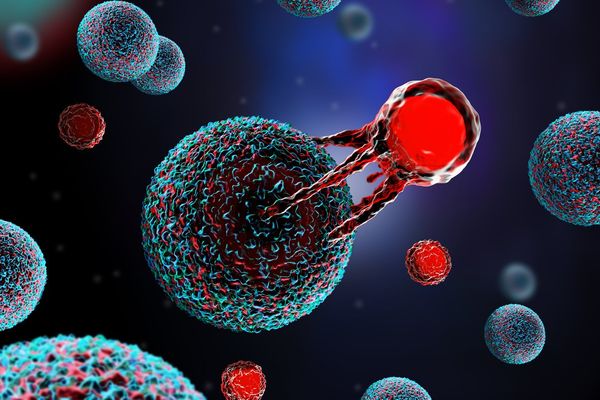When we think about our colon, we usually associate it with words like "wastes," "dirty" or "toxins."
Then it might seem reasonable that a thorough cleansing of your colon might help rid your body of excess toxins that collect over time through eating, drinking, breathing and general lifestyle habits. Supporters of colonics link those toxins to health problems, bloating, fatigue, weight gain, bad skin and more. They see colonics as a way of promoting good health and well-being, increasing vitality and aiding in weight loss.
While cleansing your colon might sound tempting, it's illogical.
Yes, cleaning out your colon is sometimes necessary, like when you're prepping to have a colonoscopy, which necessitates you to clean out your bowel so your doctor can get a clear picture of it to screen for polyps or cancer.
But your body does a pretty good job of getting rid of toxins and other harmful substances, thanks to these two important organs: the kidney and the liver. In their intricate maneuvers that resemble the fine workings of a machine, they help the body filter and eliminate toxins and wastes and convert them into harmless substances.
A colonic, also known as colonic irrigation or colon hydrotherapy, is a procedure done by a practitioner, who streams gallons of water into your body through a tube inserted into your rectum.
Though research is lacking, there's nothing to support a colonic's effectiveness as a way of promoting better health. Instead, there is anecdotal data to support the case against colonics. The procedure can cause abdominal cramping and pain, diarrhea, nausea and vomiting and, in some cases, death. Diarrhea, which causes a large amount of fluid loss, can shift your body's electrolyte levels, causing you to become lightheaded or develop leg cramps or abnormal heart rhythms.
And for those with kidney disease or heart problems who already have trouble maintaining proper fluid balance in their bodies, colonics can be particularly dangerous.
Colonics also raise the risk of eliminating the helpful and beneficial bacteria that live in your colon. This "gut flora" helps with everything from supporting your body's immune system to absorbing nutrients.
What's more, colonic hydrotherapy can put you at an increased risk for a bowel perforation or serious infection. For people with conditions like Crohn's disease, ulcerative colitis and recurrent diverticulitis, colonics could prove dangerous, as well.
Although there continue to be people who believes in the "magic" of colonics—whether it be routine or periodic use of colon cleansing—it might be best to consider this: Trust the inner workings of your own body to take care of business. It's equipped for and has been doing the job from the beginning of time.






